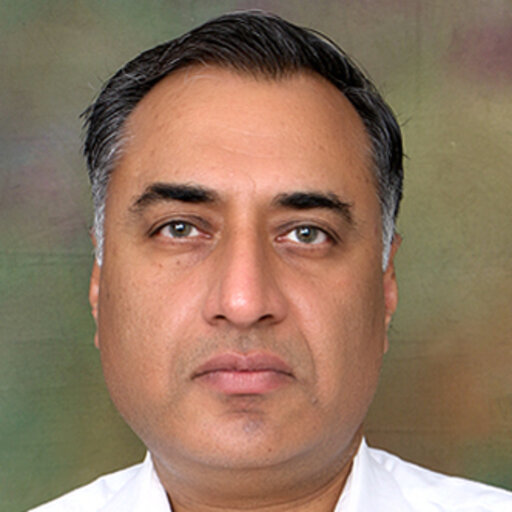
Dr. Anil Kumar Angrish

Dividend payment by pharmaceutical companies like companies from other sectors, gets influenced by multiple factors. These factors include use of retained earnings for Capital Expenditure requirements, use of funds for acquisitions, investment in new businesses as part of strategic plans, debt payment obligations, debt equity ratio, liquidity position of the company, operating cash flow, past dividend patterns, reserves and surpluses of the company, return on invested capital, working capital requirements, macro-economic conditions in an economy, statutory requirements, competitive conditions, among others. Tata Consultancy Services (TCS) is well known for its track record of generous dividend payouts. It is also worthwhile to note that promoter holding in TCS is more than 70 per cent, 71.77 per cent in June 2024 quarter to be precise. Higher promoter holding results into higher dividend payment to promoters.
Cash balance as a Liquidity Measure, Total Debt as a Leverage Measure, and ‘Profit after Tax’, ‘Capital Expenditure’, ‘Retained Earnings’, Earnings per Share’, ‘Dividend per Share’ and ‘Dividend Payout Ratio’ have been found as key determinants of the dividend policy of pharmaceutical companies in India. For this write-up, emphasis is on impact of promoter holding, dividend distribution tax (DDT), type of capital expenditure in pharmaceutical sector on dividend payout ratio.
Pharmaceutical companies have to incur capital expenditure on multiple activities, e.g., in 2023-23, Sun Pharma acquired the remaining shares of Taro, a company in which Sun Pharma already had a controlling stake. In 2021-22, Sun Pharma acquired Uractiv Portfolio from Fiterman Pharma in Romania Pipeline projects in 2021-22. In the same year, it launched Brillo, a first-in-class oral lipid-lowering drug in India. In 2020-21, Sun Pharma entered into a licensing agreement with Eli Lilly to expand access to Baricitinib, in helping alleviate the burden of Covid-19 in India.
Table 1: Promoter Holding in Top pharma companies in India and Dividend Payout Ratio (DPR)
| Sun Pharma | |||||
| FY | 2019-20 | 2020-21 | 2021-22 | 2022-23 | 2023-24 |
| Promoter Holding (%) | 54.69 | 54.48 | 54.48 | 54.48 | 54.48 |
| DPR (%) | 37 | 54 | 66 | 30 | 31 |
| Divi’s Labs | |||||
| Promoter Holding (%) | 51.97 | 51.95 | 51.94 | 51.94 | 51.92 |
| DPR (%) | 31 | 21 | 18 | 43 | 50 |
| Cipla | |||||
| Promoter Holding (%) | 36.68 | 36.73 | 33.63 | 33.55 | 33.46 |
| DPR (%) | 21 | 17 | 16 | 24 | 25 |
| Dr. Reddy’s Labs | |||||
| Promoter Holding (%) | 26.75 | 26.74 | 26.72 | 26.69 | 26.65 |
| DPR (%) | 21 | 21 | 23 | 15 | 12 |
| Torrent Pharma | |||||
| Promoter Holding (%) | 71.25 | 71.25 | 71.25 | 71.25 | 71.25 |
| DPR (%) | 53 | 47 | 104 | 30 | 29 |
| Zydus Lifesciences | |||||
| Promoter Holding (%) | 74.88 | 74.88 | 74.88 | 74.98 | 74.98 |
| DPR (%) | 25 | 24 | 30 | 40 | 8 |
| Abbott India | |||||
| Promoter Holding (%) | 74.99 | 74.99 | 74.99 | 74.99 | 74.99 |
| DPR (%) | 90 | 85 | 73 | 73 | 73 |
| Alkem Labs | |||||
| Promoter Holding (%) | 65.88 | 60.16 | 57.13 | 57.16 | 56.74 |
| DPR (%) | 26.5 | 22.6 | 25.0 | 48.5 | 56.74 |
| Aurobindo Pharma | |||||
| Promoter Holding (%) | 52.01 | 51.94 | 51.83 | 51.84 | 51.84 |
| DPR (%) | 6.2 | 4.4 | 10.0 | 23.0 | 8.3 |
In last four years, promoter holding in Sun Pharma has remained constant whereas dividend payout ratio has fluctuated. In FY2019-20, DPR was 37 per cent which went up to 54 per cent in FY20-21. It must be seen in the background that Dividend Distribution Tax (DDT) was abolished in February 2020. In Divi’s Labs, promoter holding has not changed significantly in last five years, but dividend payout ratio has shown immediate decline in 2020-21 and 2021-22 but again started showing upward trend. From 2019 to 2022, Divi’s Labs completed the brownfield DC and DCV SEZ units and de-bottlenecking programs became operational, besides modernization of waste water treatment plants at manufacturing site.
For Cipla, promoter holding got reduced in last five years from 36.68 per cent in 2019-20 to 33.46 per cent in 2023-24. Pattern is similar to Divi’s Labs as DPR went down to 17 per cent in 2020-21 from 21 per cent in 2019-20 and further declined to 16 per cent in FY22. In 2022-23, Cipla acquired 21.05 per cent stake in Achira Labs for the access of ‘Point of Care’ diagnostic medical testing. In FY21-22, the company had signed a non-exclusive licensing agreement with MSD for manufacturing and distribution of Molnupiravir. In FY21, the company announced acquisition of the prescription drug ZEMDRI from Achaogen Inc besides acquiring novel anti-infective Elores from Venus Remedies, and acquisition of brand name and trademark rights for Vysov of the anti-diabetic drug.
In Dr. Reddy’s Labs, there is marginal change in promoter holding in last five years but DPR declined significantly from 21 per cent in FY20 to 12 per cent in FY24. After abolition of DDT, DPR remained stable in FY21 and went up to 23 per cent in FY22 but declined thereafter. Capital expenditure activities included opening up of a new 70,000 sq ft facility in Hyderabad to focus on development and manufacturing of proteins used in drugs in 2023-24, launch of Sorafenib tablets in 2022-23, and acquisition of portfolio of branded and generic hospital injectable products from Eton Pharma, based in Illinois in the same year. Substantial capital expenditure is expected to affect the dividend paying capacity. In contrast to this, in FY22, the company had entered into a voluntary licensing agreement with Eli Lilly to manufacture and commercialize Baricitinib in India, launch of Sputnik V in Indian market, collaboration with ICICI Lombard pilot launch of first-of-its-kind integrated and cashless digital health solution in India, and launch of Minoxidil topical solution for the treatment of female pattern hair loss.
In Torrent Pharma, decline in DPR was observed in FY21 to 47 per cent from 53 per cent in FY20. In FY22, significant rise was observed in DPR whereas there was decline in DPR in FY23, and FY24. In FY23, Torrent Pharma acquired 100% stake in Curatio Health Care, a leading player in the cosmetic-dermatology segment with a portfolio of over 50 brands marketed in India. In FY22, the company introduced new products, particularly in the space of NDDS, Fixed Dosage Combinations (FDC), and line extensions, thereby leveraging ensuing patent expiry in the chronic space.
In Zydus Lifesciences, there was marginal decline in DPR in FY21 to 24 per cent from 25 per cent in FY20. In FY22 and FY23, DPR increased to 30 per cent and 40 per cent respectively. Decline in DPR was observed in FY24 as the company acquired UK-based LiqMeds Group for Rs. 690 crore. In FY23. The company launched 32 products in the US generics market, and the company was the first player to launch the generic version of Topiramate Extended-Release capsules. In FY22, the company extended the Joint Venture – Bayer Zydus Pharma Private Limited with Bayer by three years. In FY21, it signed a non-exclusive licensing agreement with Gilead Sciences Inc., to manufacture and market Remdesivir.
In Abbott India, promoter holding has remained constant at 74.99 per cent in last five years. In FY21, there was marginal decline in DPR to 85 per cent from 90 per cent in FY20. Further, in FY22, DPR declined to 73 per cent and then it remained at same level of 73 per cent. In FY24, the company launched the XIENCE Sierra Everolimus Eluting Coronary Stent System in India. In FY23 too, the company launched New PediaSure with Nutri-Pull System to help support catch up growth and overall, health in children. In FY22 too, the company launched Amplatzer Piccolo Occluder in India. In FY21, the company announced a collaboration with 1mg to make FreeStyle Libre Pro available online.
In Alkem Labs too, decline in DPR was observed in FY21 to 22.6 per cent from 26.5 per cent in FY20. In FY22, DPR increased to 25 per cent and then further increased to 48.5 per cent in FY23. Decline in DPR was observed in FY24. In FY23, the company launched the world’s 1st biosimilar for Cetuximab, which is used for treatment of head and neck cancer, and also launched a unique patented technology for the treatment of Diabetic Foot Ulcer. In FY22 too, the company launched inhalation device Innohaler for COPD patients, Ibuprofen and Famotidine Tablets in US market.
In Aurobindo Pharma too, decline in DPR was observed in FY21 to 4.4 per cent from 6.2 per cent in FY20. In FY22 and FY23, DPR went up and declined in FY24 to 8.3 per cent. In FY21, the company acquired the business and certain assets of Veritaz Healthcare.
In 7 pharmaceutical companies including Lupin, out of top 10 listed pharmaceutical companies, DPR declined immediately after roll back of Dividend Distribution Tax as shareholders would be taxed on dividends received as income. Thus, promoters who were the major shareholders in the firms were affected as the rate of DDT was lower as compared to tax on dividend income. Except for Alkem Labs and Cipla, there was no substantial change in promoter holding. In FY24, for 5 out of top 10 companies namely Sun Pharma, DRL, Torrent, Zydus Lifesciences, and Abbott India, DPR has declined as compared to FY20. In contrast to this, DPR for Divi’s, Cipla, Alkem, Aurobindo and Lupin, has gone up in FY24 as compared to FY20. Impact of Capex on DPR was visible as funds got deployed in acquisitions, expansion of facilities, acquisition of brands, among others.
Dr. Anil Kumar Angrish-Associate Professor (Finance and Accounting),Department of Pharmaceutical Management, NIPER S.A.S. Nagar (Mohali), Punjab
Diksha Singh- MBA (Pharm.), Department of Pharmaceutical Management, NIPER, SAS Nagar (Mohali), Punjab
Disclaimer: Views are personal and do not represent the views of the Institute.




